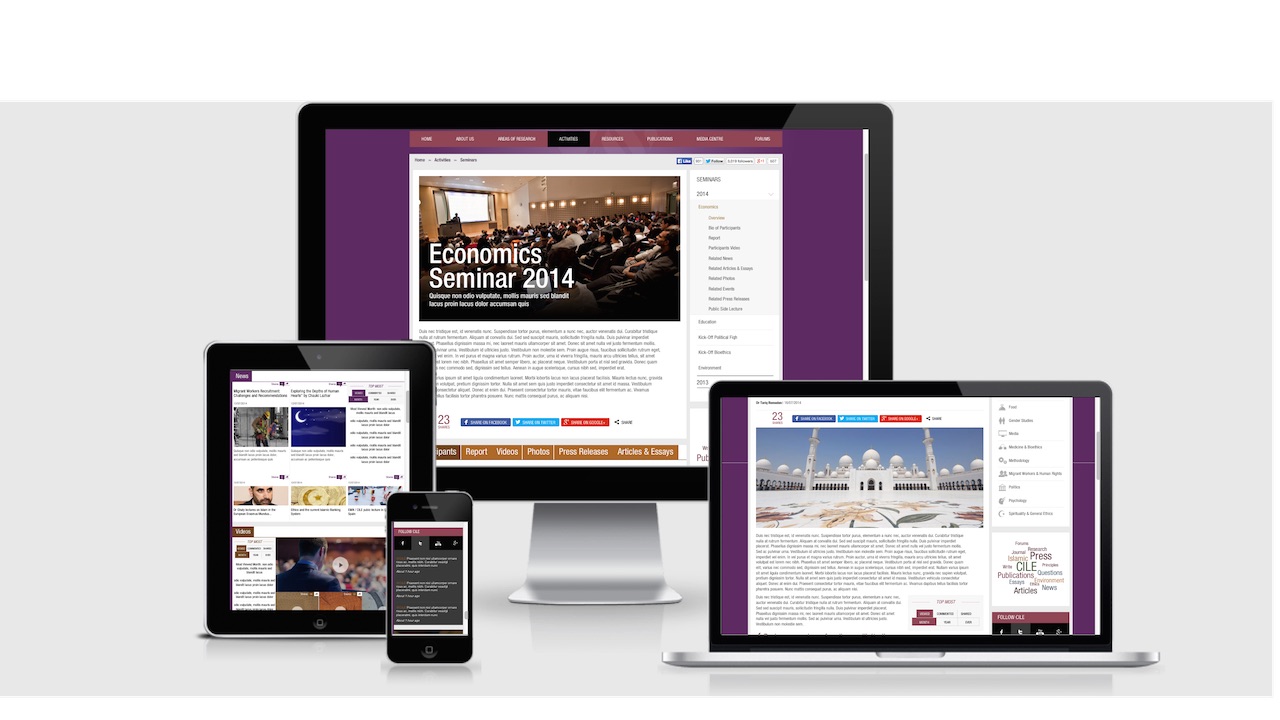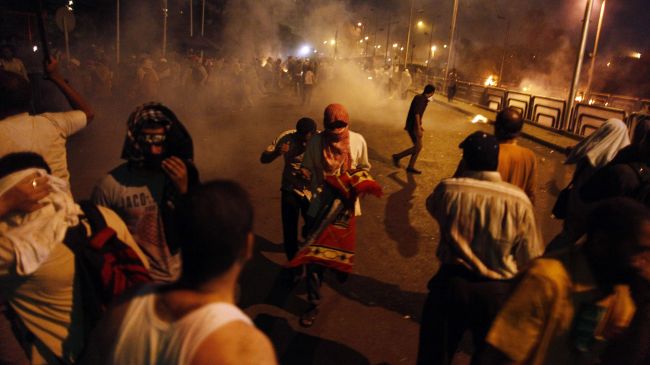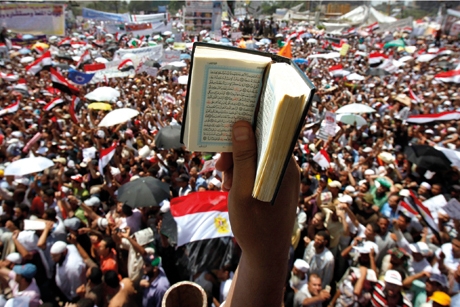Whether in Muslim-majority societies or as a religious minority in the West or the East, being Muslim has become synonymous with pointed questions, with tension and mistrust, even with conflict and war. It has become a global phenomenon, a new norm, with profound consequences for inter-communal relations, political rhetoric and policies at the local, regional, national and international level. Hardly a week goes by without the “Muslim question” being raised, through a local controversy, a regional conflict or a national debate, through violence, extremism or literalism, or through the rise to power of Islamist parties in Tunisia, Morocco and Egypt (years after electoral victory in Palestine). Islam, well beyond its extremist, literalist or political interpretations, has become a problem; the globalization of information reinforces a world-wide collective state of mind that legitimizes doubt, mistrust and even stigmatization on the one hand, while on the other, on the Muslim side, touching off defensive reactions that range from a sense of victim-hood to uncontrollable aggressiveness. In sum, these are hard times for Muslims, who must confront numerous challenges, both locally and on a world scale.
Confusion is widespread; everything seems connected, thrown together pell-mell, in an endless flow of media coverage that has become almost impossible to analyze and to decode. FIFA (the world soccer body) finally accepted headscarves but France promptly rejected them; demonstrations against Shar’ia took place in the streets of London as did protests against its application in the United States; four French camp councilors were dismissed, then rehired, for fasting during Ramadan; in the Netherlands Muslims faced outright calumny… all amplified by real-time media coverage and the Internet, as if to echo the rise of political Islam and the Arab uprisings, the civil war raging in Syria, the Israel-Palestine question, Sunni-Shia tensions, incidents of stoning in northern Mali by literalist Salafis, and the resurgence of calls for a stricter application of Islam in Pakistan, Malaysia and certain petromonarchies. Nor can we overlook the ongoing repression against Muslims in China and now, Burma, as well as inter-religious tensions in numerous African and Asian countries. Simply observing the state of the world and the societies that compose it confronts us with the question of Islam: it lies at the heart of the coexistence of religions, of the relationships between civilizations, of secularization, of ideological choices and models of state structures, of connections between regional cultures and globalization, of civil society and its future, of the status of women and citizens. The issue cannot be eluded: every responsible human being now faces the question of Islam and must weigh the evidence, draw conclusions, and take a stand.
Powerful lobbies and interest groups have much to gain from maintaining ideological and media pressure, with the avowed intent of transforming Islam into a threat and Muslims into shadowy, dangerous beings. One need only recall the words of David Yerushalmi (the instigator of the anti-Shar’ia campaign in the United States): even if the attempt to pass anti-Shar’ia legislation fails, the important thing is to create a buzz, sow the seeds of controversy and convince the average citizen that Islam is a threat. The crushing failure of an anti-Islam campaign may turn out to be a crushing success simply by virtue of the noise it creates. The same logic unites populists of many countries; carefully targeted media campaigns operating on a similar sliding scale are used in coverage of Muslim-majority countries. The deafening silence of most Western media toward the Ben Ali or Mubarak dictatorships (while they held power) quickly gave way to support for democracy with fine-tuned sensitivity to the treatment of women, of homosexuals and religious minorities in the successor regimes. Precisely the kind of questions that were never asked of the dictators, and which are only whispered when it comes to allies in the Gulf. In fact, purely ideological media coverage and distortion of information stands increasingly exposed.
What we are describing is by no means a “global conspiracy” against Islam and against Muslims, as some fantasize. Of course, centers of ideological interest do exist; but it is equally clear that the media machine and the political reactions it provokes form a vicious circle. Controversy whets public curiosity, which feeds into populist strategy that in turn drives short-term electoral tactics: the media then play to a guaranteed audience. In a high-tech age, with its instantaneous processing of information and global competition, Islam is profitable. No doubt about it: Islam makes money, plenty of money. Caught between ideological manipulation and the logic of capitalism, Islam—and with it the fate of Muslims—finds itself in a negative, not to say oppressive dynamic.
How are we to extricate ourselves? How, first and foremost, can we escape from the mentality of the eternal victim that overcomes us when the worldwide media and political tsunami, transforming Islam into a global threat, sweeps away all in its path. Paradoxically, in its extreme negativity, our predicament also contains many of the elements needed to overcome it and move beyond it. When people ask questions about Islam and Muslims—often in perfect ignorance—the latter are presented with an excellent opportunity to explain, to educate and to engage in dialogue. If their world-wide visibility is seen as a problem because of their dress codes, their names, their colors (or because of regional conflicts), the solution is not to become less visible, but better visible. The modern era has summoned Muslims to a global jihad of knowledge, of education, of dialogue, of communication and of resistance. A jihad of serenity, peaceful, non-violent; of bearing witness. Our point of departure is self-knowledge, and self-criticism that avoids the extremes of interpretational deception and self-flagellation. A Muslim conscience must emerge, one that can clearly state what Islam is and what it is not (in full respect of diversity and pluralism), and to denounce hypocrisy, both our own and that of self-serving or populist ideologies. An open conscience that is able to respond to the legitimate questions of a majority that seeks to understand, as well as a courageous conscience that can stand up to the racism of a minority that deceives, lies and manipulates. Our commitment must be individual, local, national and worldwide. The dynamics that today have made Islam a problem have also transformed it into a question: it is the responsibility of Muslim women and Muslim men to step forward with confident answers.
Source: http://gulfnews.com/opinions/columnists/being-muslim-in-the-age-of-globalisation-1.1058633










I would like to thank you so much Dr. Ramadan for providing this opportunity to comment on your article. I’m particularly grateful for filtering, not censoring, the users’ comments, I’m really fed up with the ugly comments popping up everywhere on the social networks.
I highly appreciate your rational approach (some would prefer referring to it as moderate) and your extraordinary ability to defend the Islamic cause through discrediting the most sophisticated misconceptions and causing real trouble to the most ardent monsters of both west and east. Well, this rationality and ability make for the greatest part of an acceptable answer to your big question:” How are we to extricate ourselves?”. “The mentality of the eternal victim” is but a psychological escape from our eternal fear to assess our failures that accumulated through centuries, and it would vanish as soon as we manage to liberate ourselves from this destructive and distracting fear.
Our enemies managed to sell a great deal of their misconceptions about Islam as absolute truths although I bet they are completely aware that they are wrong, and managed to sell their crimes against Muslims as acts of self defense, in the mean time, we failed to defend our most legitimate causes. Some would argue that the consumer culture is at the origin of transforming the human beings into silly creatures ready to believe in everything presented with, which is of course at least partially wrong. The real reason is not only that our enemies are working relentlessly on the issue and know how they present their lies carefully shrouded in their luring ideals, but also our fatal failure to assess ourselves and to deal with the other.
Read and read and read with an open mind and a strong heart, this is the answer as I see it. It’s not an accident that the Quran revelations began with this key word. We have to go back to our history and theirs and learn from our failures and their successes. We have to deal with our failures no longer as a sign of shame to be hided but as an asset to be exposed and studied in order to grab as many lessons as we could.